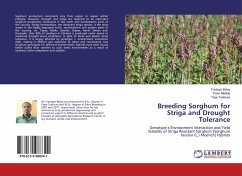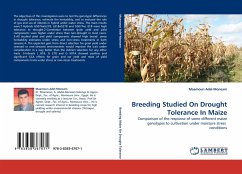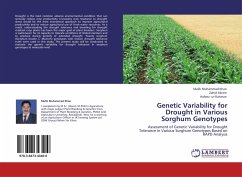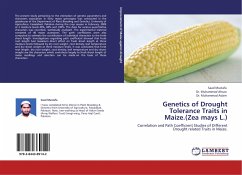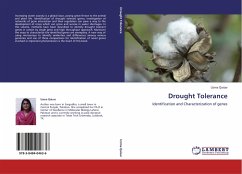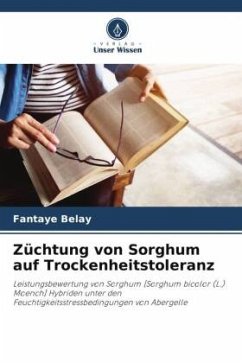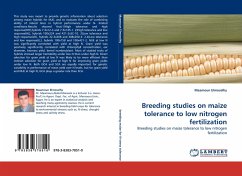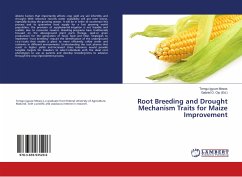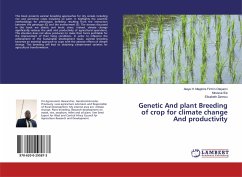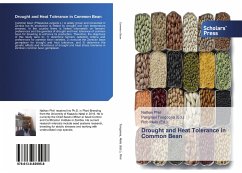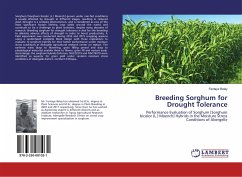
Breeding Sorghum for Drought Tolerance
Performance Evaluation of Sorghum [Sorghum bicolor (L.) Moench] Hybrids in the Moisture Stress Conditions of Abergelle
Versandkostenfrei!
Versandfertig in 6-10 Tagen
24,99 €
inkl. MwSt.

PAYBACK Punkte
12 °P sammeln!
Sorghum [Sorghum bicolor (L.) Moench] grown under rain-fed conditions is usually affected by drought at different stages, resulting in reduced yield. Drought is a complex phenomenon, and is considered as one of the most significant factors limiting crop yields around the world and continues to be a challenge to plant breeders, despite many decades of research. Breeding sorghum for drought tolerance is vital for the breeding to alleviate adverse effects of drought in order to boost productivity. A field experiment was conducted during 2014 and 2015 cropping seasons using a randomized complete b...
Sorghum [Sorghum bicolor (L.) Moench] grown under rain-fed conditions is usually affected by drought at different stages, resulting in reduced yield. Drought is a complex phenomenon, and is considered as one of the most significant factors limiting crop yields around the world and continues to be a challenge to plant breeders, despite many decades of research. Breeding sorghum for drought tolerance is vital for the breeding to alleviate adverse effects of drought in order to boost productivity. A field experiment was conducted during 2014 and 2015 cropping seasons using a randomized complete block design with three replications to evaluate 12 sorghum hybrids for their better performance under moisture stress conditions at Abergelle agricultural research center on station. The earliness traits (days to flowering, grain filling period and days to physiological maturity) enables them to flower, grain fill and mature early. Accordingly, the sorghum hybrids Enforces, NGC22319 and NGC76319 were identified as superior for grain yield under random moisture stress conditions of Abergelle district, northern Ethiopia.



